People can't stay away from fruit that is just right. Fruit that is fully ripe should have bright colours, a sweet smell, and a big burst of flavour. The use of CaCO3 accelerates the hardening process, potentially posing a hidden risk to this enjoyable activity. This is not okay with the Food Safety and Standards Authority of India (FSSAI). They have advised food businesses and sellers to prioritise customer safety and use safer alternatives.
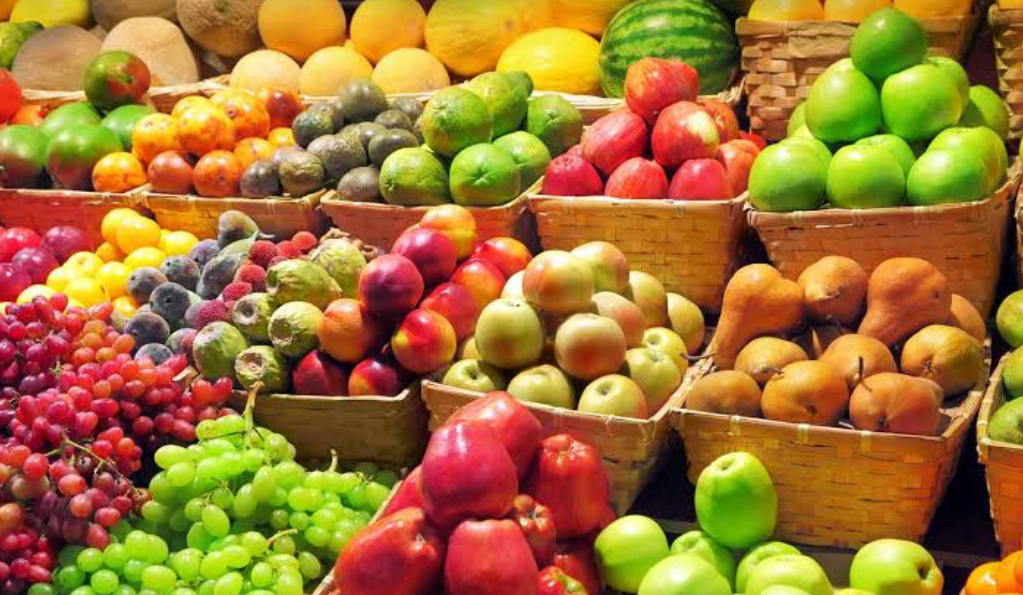
What is calcium carbide, and how does it work?
Calcium carbide is a greyish-black rock that doesn't look dangerous. Some people have used it to make fruit ripen faster. Calcium carbide gives off acetylene gas when it comes in contact with water. Fruits such as mangoes, bananas, and papayas ripen faster because this gas sets them off. Some sellers prefer this method due to its speed and ease of use. The ease of use is significantly harmful to people's health.
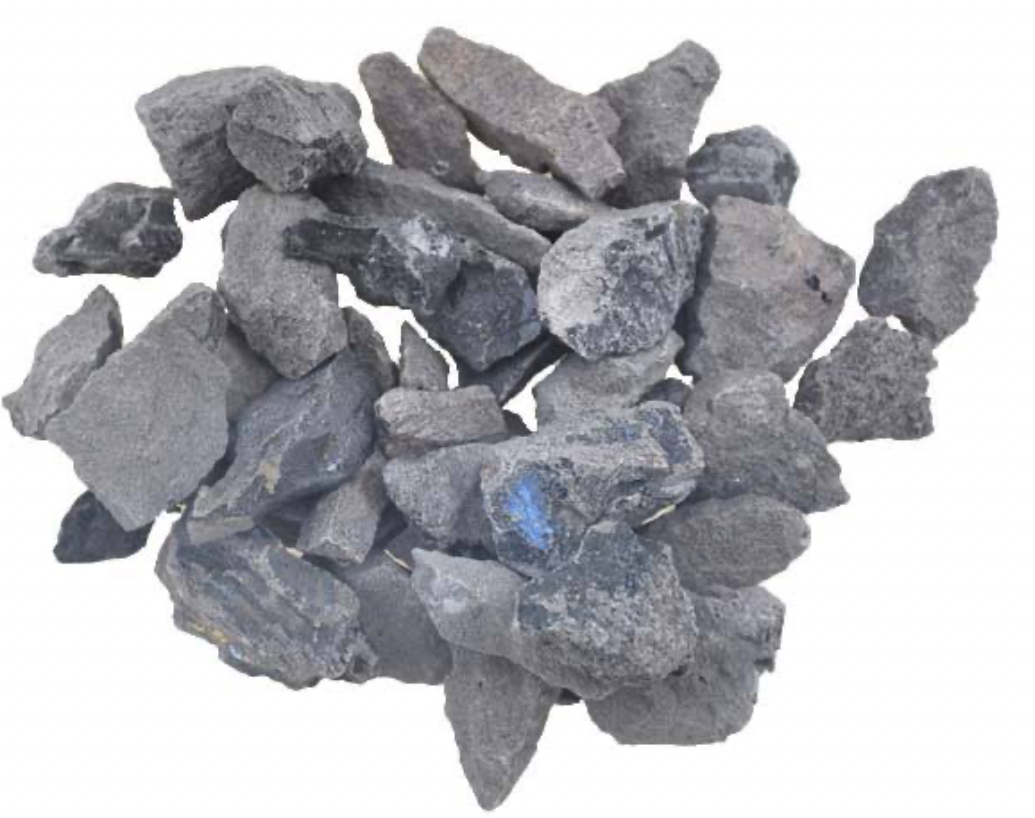
Health Risks from Calcium Carbide: The Bad Side of Ripening
Calcium carbide creates acetylene gas, which contains small amounts of arsenic and phosphorus. These are both very dangerous chemicals. Consuming vegetables ripened with calcium carbide can lead to several health complications, including:
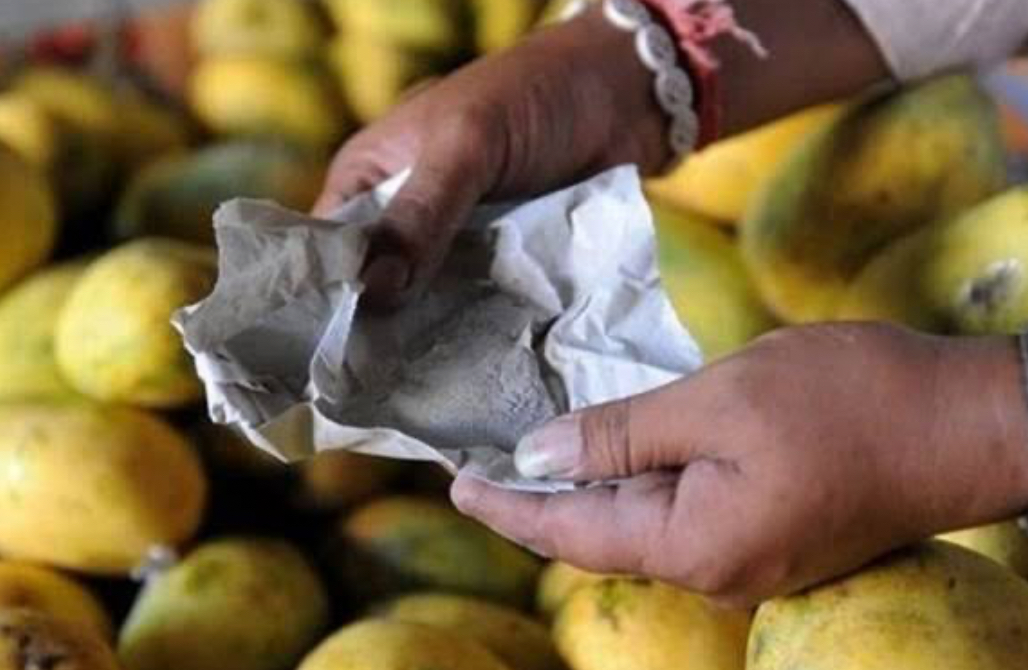
Trouble Digesting: Some of the symptoms include feeling dizzy and thirsty all the time, having trouble swallowing, throwing up, and even getting stomach ulcers.
Skin Issues: When the chemical comes into contact with the skin, it can cause irritation and ulcers.
Health Risks Over Time: Exposure to small amounts of arsenic and phosphorus on a regular basis can raise the chance of getting cancer and other long-term health problems.
The risks don't just affect customers. People who work with food can also breathe in the harmful gas of calcium carbide if they come into close contact with it during the application process.
Why is Calcium Carbide Banned in India?
Because calcium carbide is very bad for your health, the Indian government has banned its use in fruit development, which is the right thing to do. The Food Safety and Standards (Prohibition and Restrictions on Sales) Regulations, 2011, explicitly prohibit the sale or ownership of fruits chemically ripened with acetylene gas. Consumer safety is a top priority with this rule, which makes sure that fruits on the market ripen in better ways.
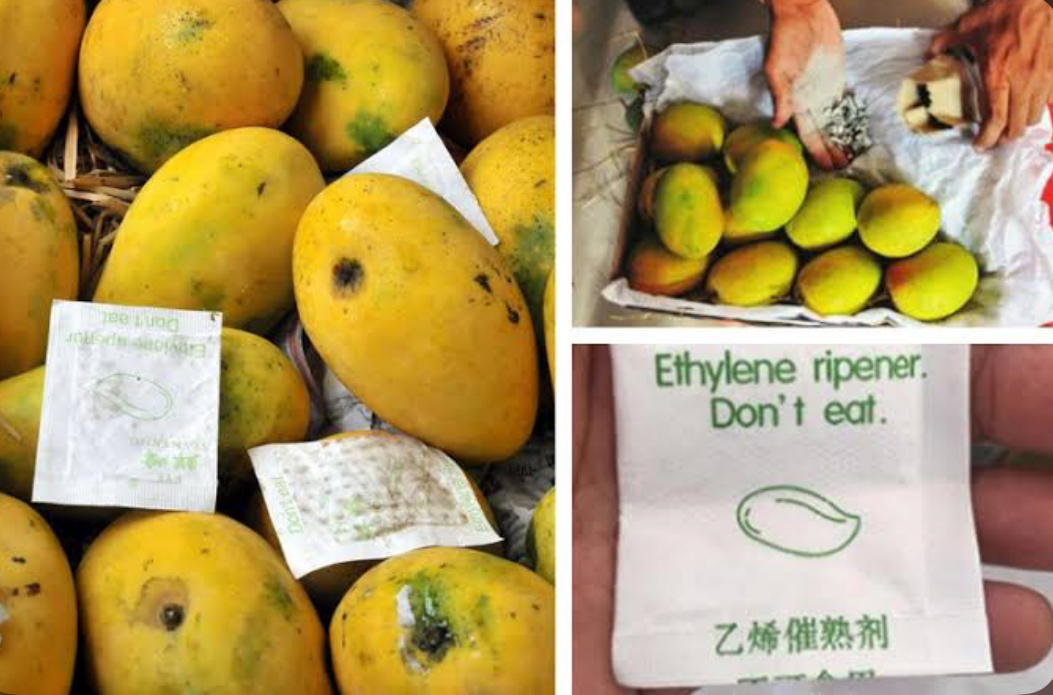
Ethylene Gas: A Safer Path to Ripeness
Luckily, there are safer and better ways to ripen fruit besides calcium carbide. A naturally occurring plant hormone called ethylene gas is very important for the ripening process. As fruits ripen, they make ethylene on their own. We can achieve colour, texture, and taste similar to their natural ripening by exposing unripe fruits to controlled amounts of ethylene gas.
Ethylene gas has several advantages over calcium carbide.
Security: Etylene gas is safe for people and animals working with food, and it doesn't hurt them in any way.
Ripening under control: You can precisely control the amount of ethylene gas to ensure that the fruit ripens evenly and doesn't get overripe.
Goodness: Fruits retain their natural taste, texture, and nutritional value when ripened with ethylene gas.
Mangoes and other fruits can now be safely and effectively ripened in India thanks to Ethephon 39% SL, a formula that produces ethylene gas. This approval came from the Central Insecticides Board and Registration Committee (CIB and RC).
Ensuring Consumer Safety: The Role of FSSAI
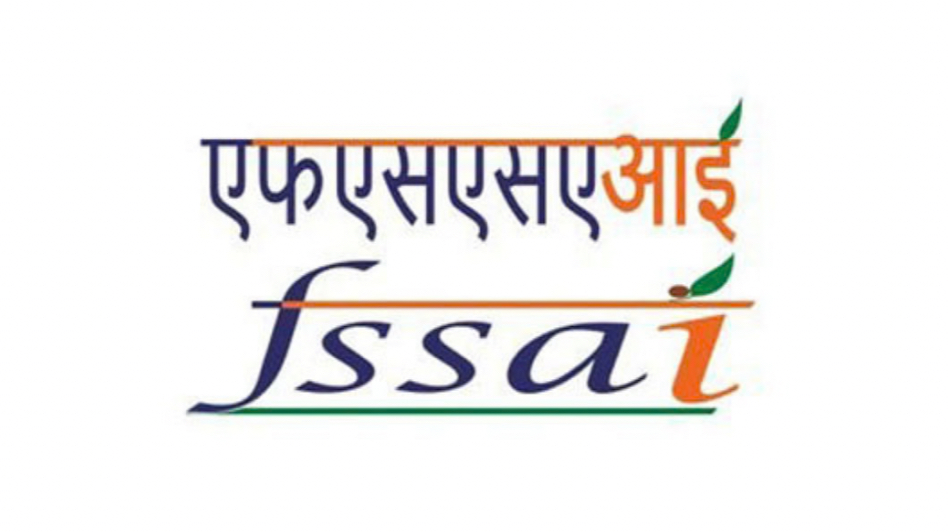
By setting Indian food safety guidelines, the FSSAI is very important for protecting people's health. Their latest warning against using calcium carbide is a good step towards making sure that fruits on the market are safe. The FSSAI does the following:
Getting People to Know: We are teaching traders, people who work in the food industry, and consumers about how dangerous calcium carbide is and how safer options are better.
Follow the rules: We are collaborating with each state's and union territory's food safety offices to enforce the calcium carbide ban and impose severe penalties on those who violate the law.
The End: A Race for Responsible Ripening
It makes sense to want fruit that is just right. But it's important to put safety first instead of taking shortcuts that could hurt your health. We can ensure that the fruits we eat are not only tasty but also free of harmful chemicals by using better ways to ripen them, such as ethylene gas. The FSSAI's work to encourage responsible ripening methods is admirable, and everyone in the food supply chain should back it. We can make a valuable contribution by acknowledging the problem and choosing fruits for safe cultivation. We should all work together to make sure that there is a race towards safe and tasty ripening.
Image Source: Multiple Agencies
Inputs from Agencies
© Copyright 2024. All Rights Reserved Powered by Vygr Media.




















